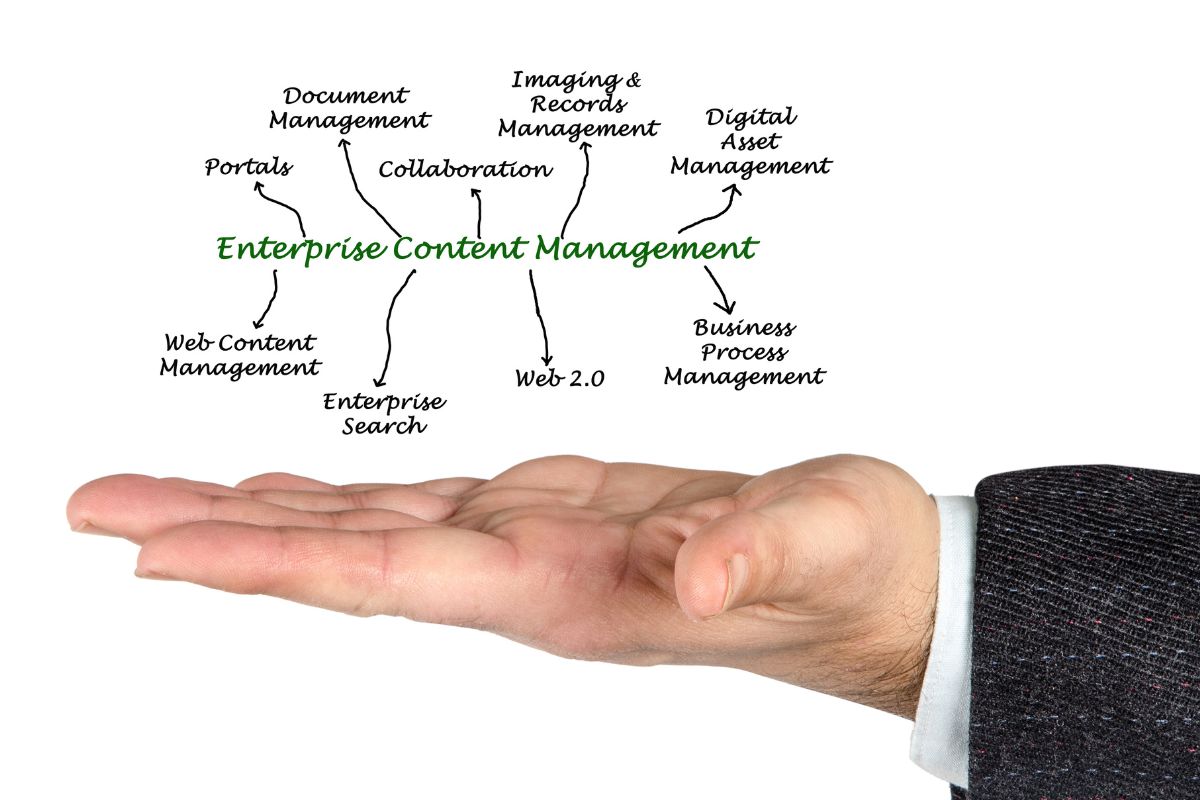:quality(80)/business-review.eu/wp-content/uploads/2024/07/What-To-Look-for-When-Choosing-Your-ECM-System.jpg)
Today’s digital world makes efficient content management a goal and a need, as information seeps into all facets of business operations like a river.
Envision a situation where your company’s vital communications, papers, and data are dispersed, unavailable, or susceptible to security breaches. This can lead to chaos and inefficiency, hindering productivity and putting your company at risk for noncompliance.
The Enterprise Content Management (ECM) system is a potent instrument that may simplify your workflow, protect your important data, and bring order to the chaos.
However, with so many possibilities at your disposal, how can you pick the ideal ECM system to meet the demands of your business?
This blog explores the key components you should search for to ensure your ECM system selection manages your content and transforms how your business operates.
Why Enterprise Content Management is Crucial for Your Business?
Content is the money that powers and finances the digital revolution. If you can harness the content, it contains valuable information about customers, including their habits, sentiments, and value to the company.

The company’s knowledge is collectively represented by the stuff hidden away in file sharing, cloud folders, and repositories throughout the corporation.
Organizations are taking proactive measures to simplify their content services procedures as the material is being produced at unprecedented rates.
A major obstacle facing organizations today is “content chaos,” which refers to the dearth of digital content and difficulty finding the appropriate content at the proper moment.
ECM software is now more critical than ever in turning a corporation into a digital one.
Key Factors to Look for in an ECM System
1. Identifying your Needs
Clearly defining your unique content management needs and difficulties is the first step. You can determine the features your ECM system should have by providing answers to the following questions:
- Which kinds of electronic documents do you oversee? (such as financial statements, contracts, communications, and bills) At what level of access control do you need to give various user groups?
- How significant are functions like document routing and automated workflows?
- Are there any industry-specific compliance laws about the management of electronic records?
Knowing what you need means that you won’t spend money on features you won’t use and that the selected system will handle your business’s issues.
2. Usability
It’s critical to identify software or a platform that all employees within the organization may efficiently utilize.
- Do your jobs become more accessible with the solution?
- What level of training is required for your staff to use the Enterprise Content Management (ECM) system?
The ECM should be simple for the personnel to utilize.
3. Simplicity of connection with current systems and programs
For enterprises, enrolling in the appropriate ECM software can be very challenging. Considering your operating preferences, financial limitations, and existing IT infrastructure is crucial.
- What level of configuration is necessary to guarantee compatibility with the current system?
It’s crucial to save time trying to get the ECM to function with your existing network. Select an ECM that requires minimal or no programming, as it will offer sufficient and broad compatibility with various applications and systems.
4. Ability to Scale
A small business with few employees should select a far more comfortable ECM, at least for its current size predicament.
- Is the ECM adaptable to the needs of a growing organization?
- Can the ECM expand to meet new demands as personnel numbers increase?
- Can you incorporate elements that will help you comply with future rules later?
To make an informed choice, you should evaluate the performance of various ECMs in several areas, including cost and security.
5. Cloud Readiness
A cloud-based storage system will provide unrestricted security, accessibility, and scalability.
- In what way does cloud technology design the ECM?
- How is the security of the solution maintained?
When choosing an enterprise content management system for your company, a cloud-based solution will make it simple to access a safe private or public cloud.
However, it would help if you thought about security features and protocols before choosing the cloud-based solution.

6. Digitalization and Automation
One of an ECM’s primary functions is the ability to scan, convert, and save paper documents in digital format.
- File automation can lower human error.
- Make sure the documentation is correct and understandable.
Boost your output by using quick access to whatever information you require. As a result, there will be less actual workplace space.
7. Security
You must confirm the security of the enterprise content management system you select. Make sure to search for business content management systems that may provide the following features when choosing one:
- Systems for managing corporate information should give different degrees of access permissions and changes.
- The ECM should support regular automated backups.
- Keep an eye on how users are handling papers.
- The complete visibility and control that ECMs provide is their most significant feature.
It’s critical to inquire about the policies and procedures in place to reduce potential harm in the case of a data breach.
To Sum Up
Remember that no one-size-fits-all solution works for everyone. The best ECM system for your company will depend on the data landscape, your budget, and your particular needs.
By ranking your needs and comparing the features provided by several ECM platforms, you’ll be prepared to select the one that will enable your company to handle material effectively, improve teamwork, and prosper in the digital era.



:quality(80)/business-review.eu/wp-content/uploads/2024/07/Nadia-Comaneci.png)



:quality(80)/business-review.eu/wp-content/uploads/2024/06/22C0420_006.jpg)

:quality(80)/business-review.eu/wp-content/uploads/2024/06/COVER-1-4.jpg)



:quality(80)/business-review.eu/wp-content/uploads/2024/06/br-june-2.jpg)
:quality(50)/business-review.eu/wp-content/uploads/2024/07/vodafone-RO.jpg)
:quality(50)/business-review.eu/wp-content/uploads/2024/07/BeFunky-collage-37-scaled.jpg)
:quality(50)/business-review.eu/wp-content/uploads/2024/07/04_ThinkPad_T14s_6_Business_Coworking.jpg)